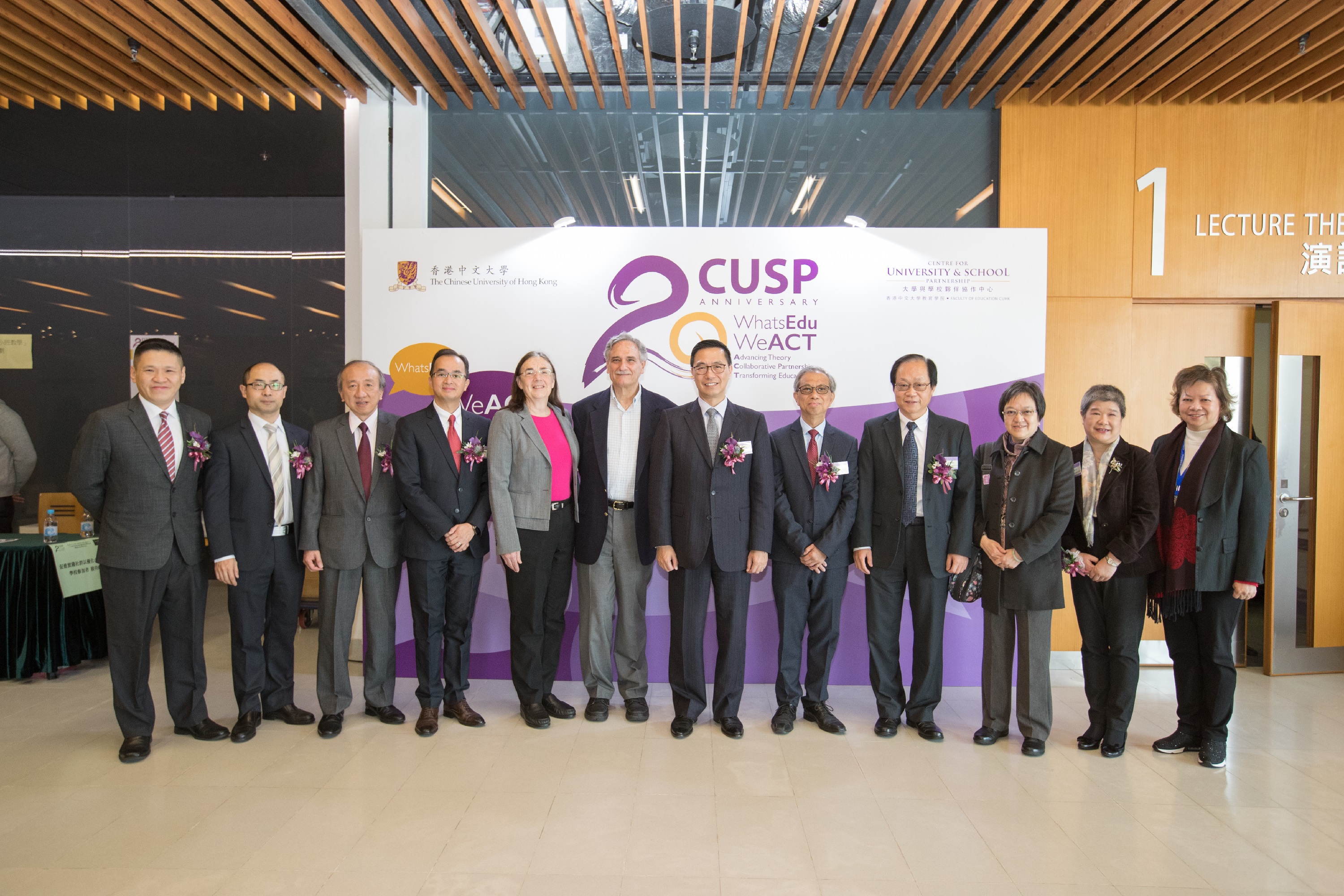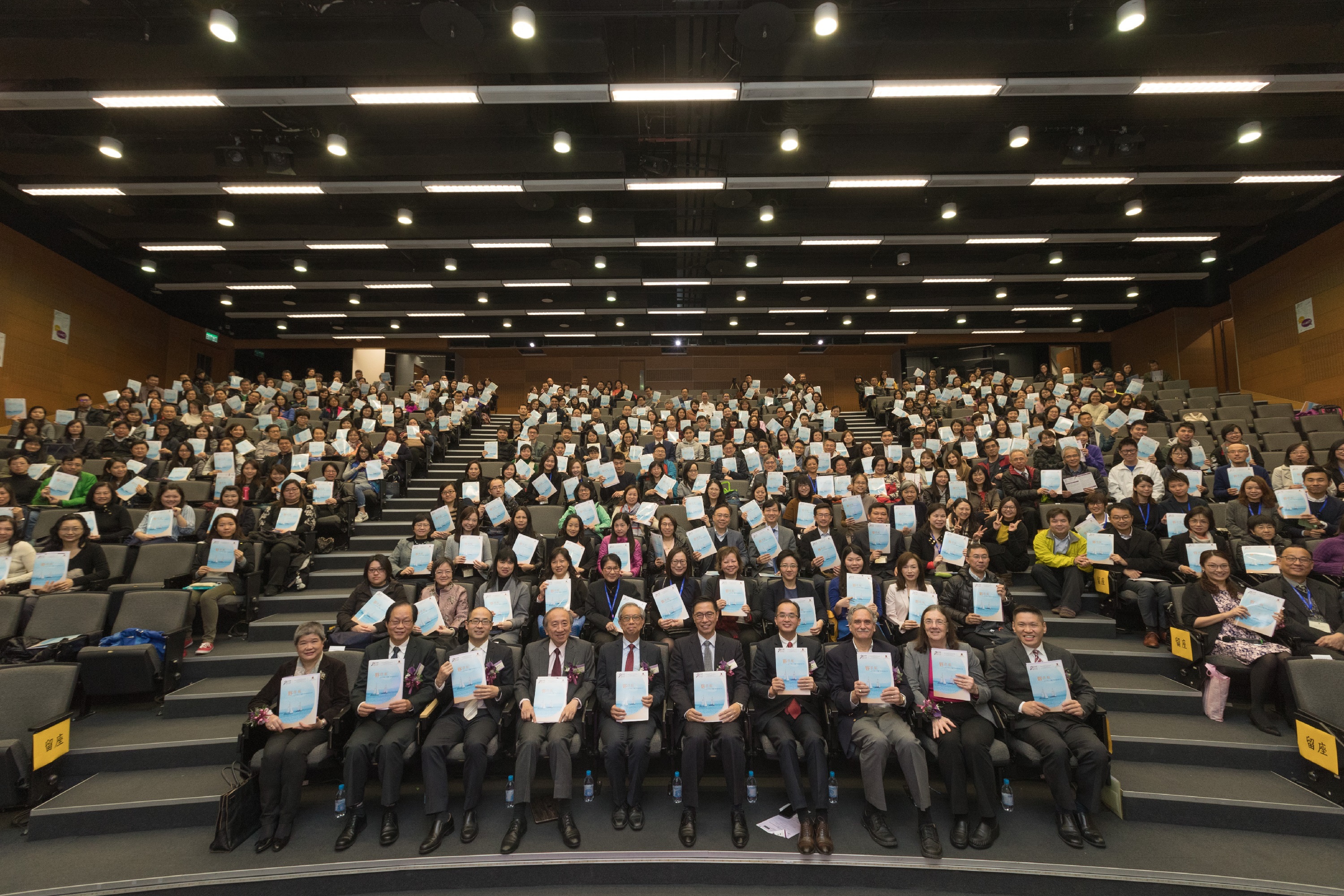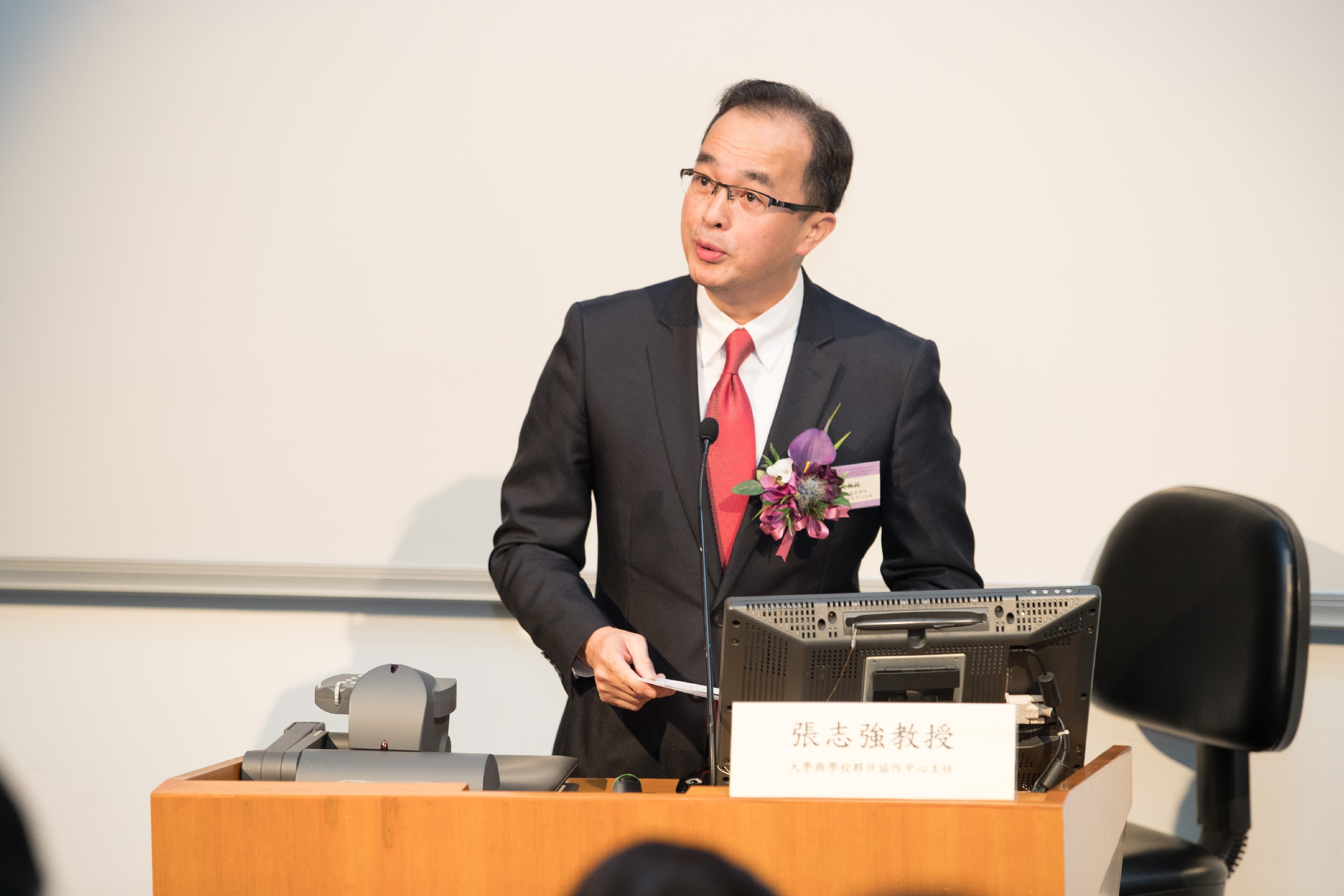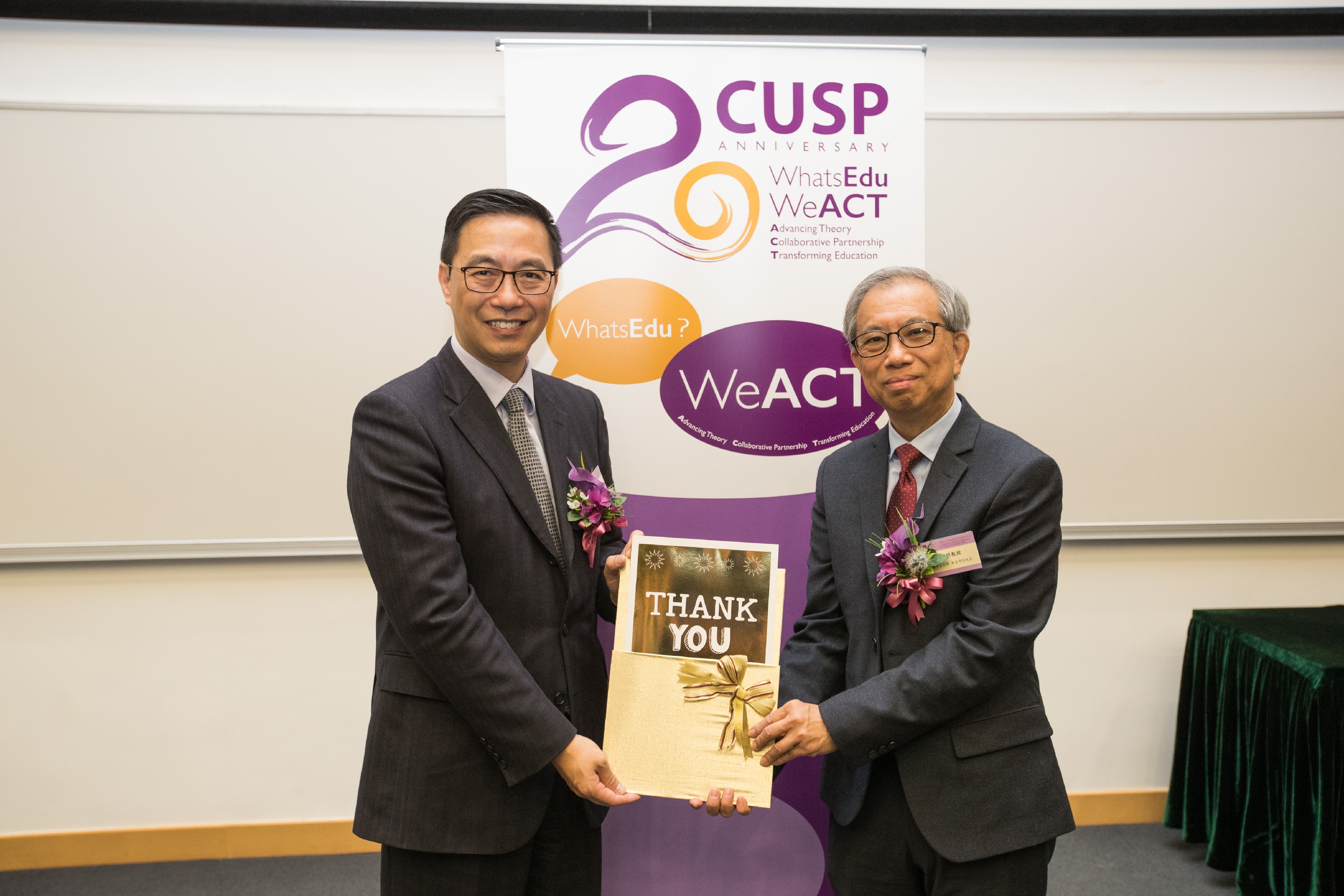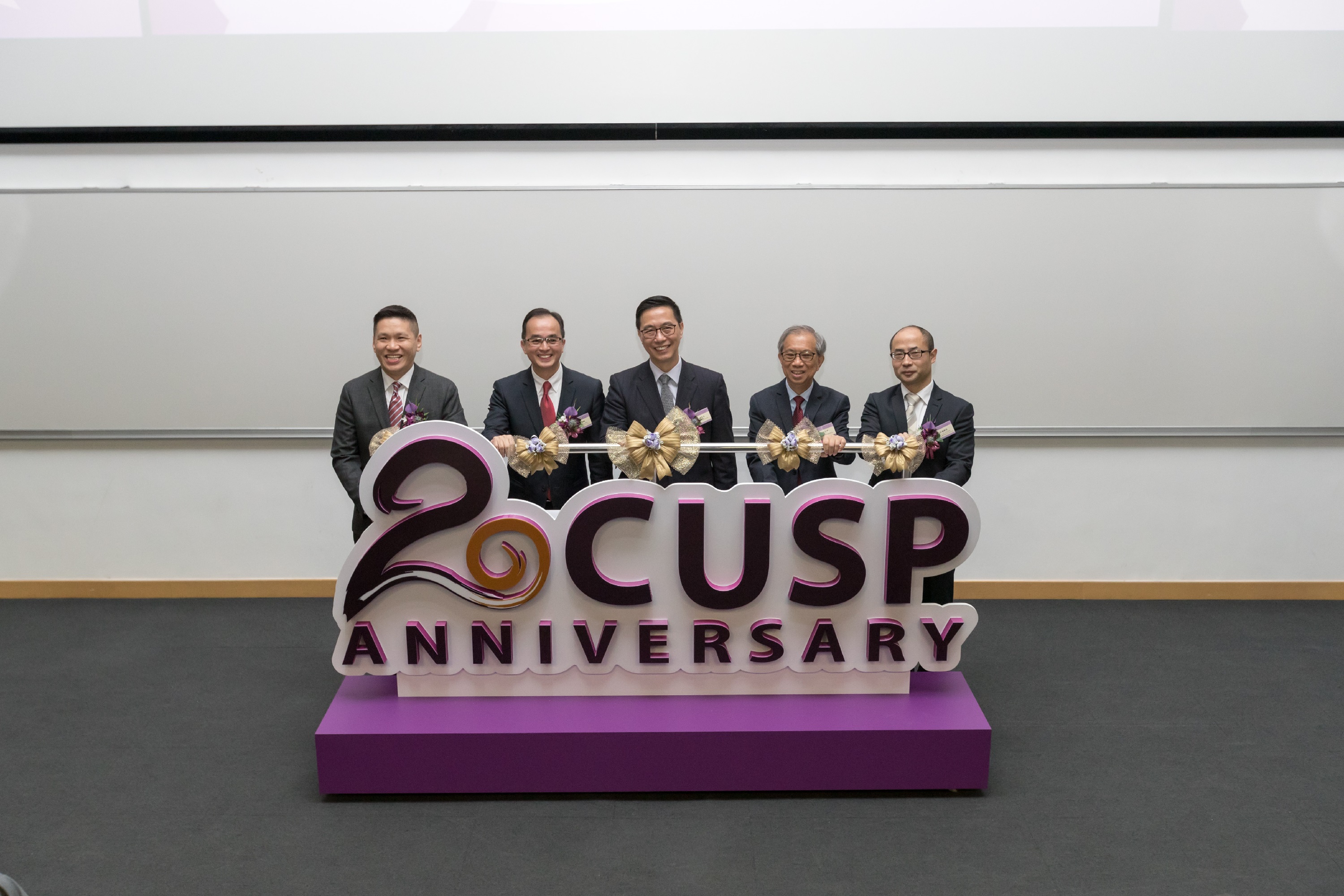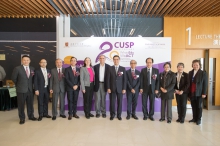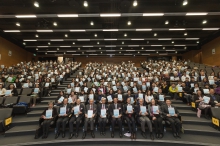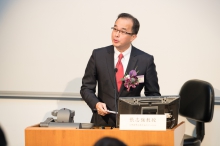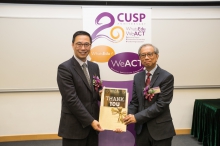CUHK
News Centre
Centre for University and School Partnership, Faculty of Education CUHK Celebrates 20th Anniversary Together with Hong Kong Education Community and Hosts Seminar on “Evidence-based Reform for School Improvement”
The Centre for University and School Partnership (CUSP) of the Faculty of Education at The Chinese University of Hong Kong (CUHK) entered its 20th year in 2018. To celebrate this significant anniversary, CUSP held a ceremony and a seminar on “Evidence-based Reform for School Improvement” last Saturday (10 March). Over four hundred members of the education community, including representatives of the Education Bureau of the Government of HKSAR, teachers from kindergartens to secondary schools and CUHK Faculty of Education students, discussed various educational achievement and recent developments. Mr. Kevin Yeung, Secretary for Education of HKSAR government, officiated at the ceremony and made an opening speech. In addition, Prof. Robert Slavin from The Johns Hopkins University and Prof. Hau Kit-tai, Choh-Ming Li Professor of Educational Psychology at CUHK, delivered keynote speeches.
Prof. Leung Seung-ming, Alvin, Dean of Education at CUHK, delivered a welcome speech at the ceremony. He said, “Evidence-based approach plays a vital role in school’s optimisation. No matter what their role, be they school administrators or teachers, evidence-based approach offers evaluation for all members in the education community and lets them know how to follow up with their work. As CUSP enters its 20th year in 2018, we hope more schools can join us as collaborators in promoting quality education.”
One of the highlights of the event was the seminar on “Evidence-based Reform in Education” delivered by Prof. Robert Slavin. He described the current state of evidence in education, its successes and difficulties and the likely future of the evidence movement and what that will mean to school leaders, teachers and students. Prof. Hau Kit-tai followed and delivered a keynote speech on “School Improvement based on research data: Misconception and Truth”. His speech focused on how we can use large-scale research data to work out an improvement scheme for schools.
Prof. Hau remarked, “Data indicates that internet addiction problem had become quite serious since students entered junior secondary. Most students spent two to three hours on computer games or social network every day, even more than that they spent on homework, and their parents seldom intervened or admonished them for that. A substantial difference in time that students needed for completing their homework is also shown in the data. Some students could complete their homework within half an hour, but some of their fellows need more than two hours. This evidence illustrates how students’ learning was influenced by their ability to focus, to resist temptation and other habits. To ease the pressure, teachers must identify and provide support to these students in need.”
In addition to the renowned scholars, two frontline practitioners, Dr. Tsui Chun-cheung, Principal of the Tai Po Old Market Public School (Plover Cove), and Ms. Gloria Leung, Service Head, Caritas Pre-School Education and Child Care Centre, spoke about their school experiences and on the topics of “The intricate relationship between school improvement and examination results: The reflection of quality education” and “Evidence and sustainability: Probe into the curriculum planning of early childhood and professional development” respectively.
About The Centre for University and School Partnership
CUSP was established in 1998 to foster a mutually beneficial relationship between CUHK and education practitioners to promote all-round quality education in Hong Kong. In collaboration, over the years, with over 1,500 schools ranging from kindergartens to secondary schools, CUSP has been devoted to supporting schools in implementing comprehensive development projects towards quality education by means of healthy collaborative relationships and a self-refining mechanism. Positive feedback has been widely received, acknowledging its efforts.
To celebrate its 20th Anniversary together with Hong Kong education community, the Centre for University and School Partnership hosts seminar on “Evidence-based Reform for School Improvement”. Honorary guests include Mr. Kevin Yeung (6th right), Secretary for Education, Prof. Robert E. Slavin (6th left) from The Johns Hopkins University, Prof. Hau Kit-tai (3rd left), Choh-Ming Li Professor of Educational Psychology at CUHK, Dr. Tsui Chun-cheung (4th right), Principle of the Tai Po Old Market Public School (Plover Cove), and Ms. Gloria Leung (2nd right), Service Head, Caritas Pre-School Education and Child Care Centre.
Prof. Cheung Chi-keung, Alan, Director of the CUSP reviews the centre’s twenty-year partnership with local education community, and looks forward to CUSP’s future role in supporting school improvement.
Prof. Alvin Leung (right), Dean of Education at CUHK, presents a thank you card to Mr. Kevin Yeung, Secretary for Education of HKSAR government.
(From left) Mr. Ng Ka Kit, Clement, Administrative Co-ordinator of CUSP; Prof. Cheung Chi Keung, Alan, Director CUSP; Mr. Kevin Yeung, JP, Secretary for Education; Prof. Alvin Leung, Dean of Education at CUHK; Prof. Yin Hong Biao, Associate Director of CUSP host the switch-on ceremony for the launch of series of 20th anniversary professional development activities.


